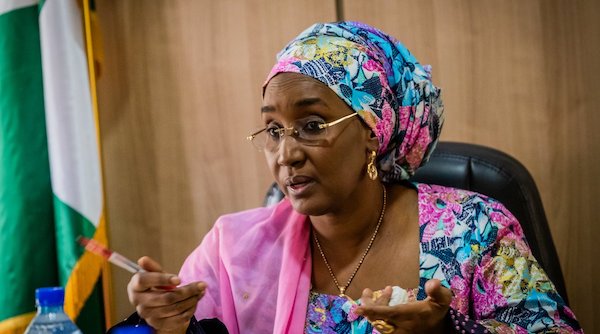News
SERAP calls for accountability, as Nigerian govt moves to feed school children at home

The Socio-Economic Rights and Accountability Project (SERAP) has called on the Federal Government to show transparency, accountability and probity in its school feeding programme.
The group was reacting to the disclosure last Wednesday by the Minister of Humanitarian Affairs, Disasters Management and Social Development, Ms Sadia Umar-Farouk, that government would start feeding school children in their homes during the COVID-19 crisis, starting from Ogun and Lagos states, as well as Abuja.
In a Freedom of Information (FoI) request SERAP sent to the Federal Government, it demanded “the authorities to urgently publish details of the suppliers and contractors, the procurement rules, including bidding processes, the total budget, and all designated voucher distribution and collection sites for the implementation of the school feeding programme at home.”
It also want to know the number of cases of states to be covered during the COVID-19 crisis, the projected spending per state, details of the mechanisms and logistics that have been put in place to carry out the programme, as well as the role expected to be played by the World Food Programme.
In the FoI request dated 9 May, 2020 and sent to Ms Umar-Farouk, SERAP asked the government to “urgently invite the Independent Corrupt Practices and Other Related Offences Commission (ICPC) and Economic and Financial Crimes Commission (EFCC) to monitor the implementation of the programme.”
The FoI request signed by SERAP deputy director Kolawole Oluwadare, read in part: “Publishing the details requested is in the public interest. This would help to address public scepticism regarding the ability of the government to satisfactorily implement the programme, promote openness, and allow Nigerians to track its implementation and to hold suppliers and contractors to account.
READ ALSO: NMA calls for withdrawal of controversial Infectious Diseases Bill
“SERAP notes that the UN Convention against Corruption to which Nigeria is a state party requires the government to set the highest standards of transparency, accountability and probity in programmes that it oversees.
“The government has a responsibility to ensure that these requirements and other anti-corruption controls are fully implemented and monitored, and to ensure that the programme benefits the children and families who need it the most.”
Join the conversation
Support Ripples Nigeria, hold up solutions journalism
Balanced, fearless journalism driven by data comes at huge financial costs.
As a media platform, we hold leadership accountable and will not trade the right to press freedom and free speech for a piece of cake.
If you like what we do, and are ready to uphold solutions journalism, kindly donate to the Ripples Nigeria cause.
Your support would help to ensure that citizens and institutions continue to have free access to credible and reliable information for societal development.






















